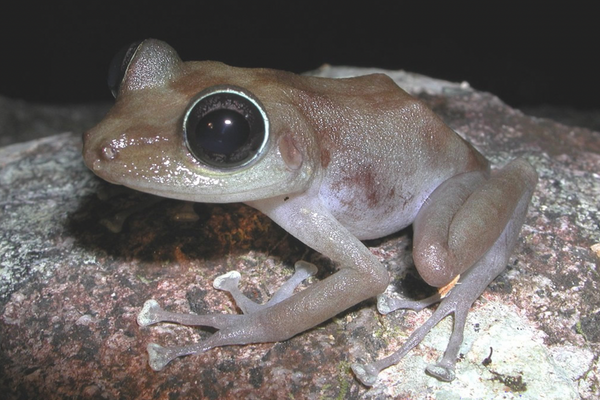An Adorable Dachshund is Fighting for Her Inheritance
Winnie Pooh is the latest beneficiary of a “pet trust” most humans would be thrilled to receive.

A wealthy dachshund (not Winnie Pooh). (Photo: OTA Photos / CC BY-SA-2.0/ www.tradingacademy.com)
Planning for your departure from the mortal realm is a tedious, complicated, and slightly depressing process, but it’s one that’s particularly critical for those who have substantial assets to divide or loved ones requiring ongoing financial support.
Unfortunately, even the most detailed wills can become a challenge to carry out, as dachshund Winnie Pooh—who received a substantial trust after her owner, Patricia Bowers, passed away in 2010—is learning first hand.
DNAInfo is reporting that Winnie Pooh’s caretaker, Virginia Hanlon, has filed court papers in Manhattan this week, alleging that the executor of Winnie Pooh’s deceased owner’s estate is improperly withholding funds from the pup’s $100,000 trust.
Winnie Pooh is not the first dog to receive a substantial bequeathal from their owner, of course—most famously, American hotelier Leona Helmsley left $12 million to her beloved maltese, Trouble, among many, many, many other pets. Winnie Pooh isn’t even among the wealthiest pets; that honor belongs to Gunther IV, who inherited his $375 million fortune from his father, Gunther III, beloved pet of Countess Karlotta Libenstein. (Yes, we have multi-generational wealthy pet dynasties now.)
But despite the growing popularity of such arrangements among the global one percent, it can be a fairly complicated legal arrangement. The American Bar Association’s GPSOLO newsletter explained the options—and potential complications—for pet owners seeking to provide for the animals that may outline them in a 2009 article.
The first option—and maybe most obvious, to a layperson—is to provide for your pet via your will. But as Rachel Hirschfield explains in GPSOLO, wills have numerous potential pitfalls that could lead to your pet not getting the care (and funds) you intended to give them. Instructions in wills aren’t enforceable—they’re only intended to distribute property—and can be changed at the court’s discretion.
Trouble, in fact, ran into issues with court modifications to her inheritance. As Trouble’s 2011 obituary in The New York Times noted, Trouble’s inheritance was reduced by a judge from $12 million to $2 million after two of Helmsley’s disinherited grandchildren challenged Helmsley’s mental competence when the will was signed—a situation Hirschfield specifically warns against in her article.
The better choice, according to Hirschfield (and the American Society for the Prevention of Cruelty to Animals), is a pet trust. Just like the trusts created for wealthy children around the world, a pet trust provides numerous benefits beyond a will; numerous instructions and conditions regarding the care of the pet and disbursement of funds can be set, the trust’s funds can be invested to enlarge the trust over time, and funds can be disbursed over time rather than all at once.
Winnie Pooh, it seems, was the beneficiary of a pet trust. The trust set aside $100,000 for the now seven-year-old dog’s care, to be paid out in quarterly reimbursements to Hanlon, per DNAInfo. Hanlon claims that that Bowers’ executor, Harriet Harkavy, hasn’t been following Bowers’ instructions, withholding funds and attempting to donate $70,000 from it to the Animal Medical Center—although Bowers specified that the remainder of the trust should be donated only after Winnie Pooh’s death.
Harkavy counters that she has reimbursed expenses appropriately, including $5,775 spent on emergency orthopedic surgery for the dachshund.
According to Professor Gerry W. Beyer of Texas Tech University’s School of Law, pet trusts typically should include instructions on how the pet’s caretaker should be reimbursed and what documentation is required. So Winnie Pooh’s case may simply be a matter of a judge determining whether Harkavy has followed those instructions appropriately.
According to court filings examined by the New York Post, the trust still contains $94,000—more than enough for the little dachshund to live out the rest of her life in comfort.















Follow us on Twitter to get the latest on the world's hidden wonders.
Like us on Facebook to get the latest on the world's hidden wonders.
Follow us on Twitter Like us on Facebook